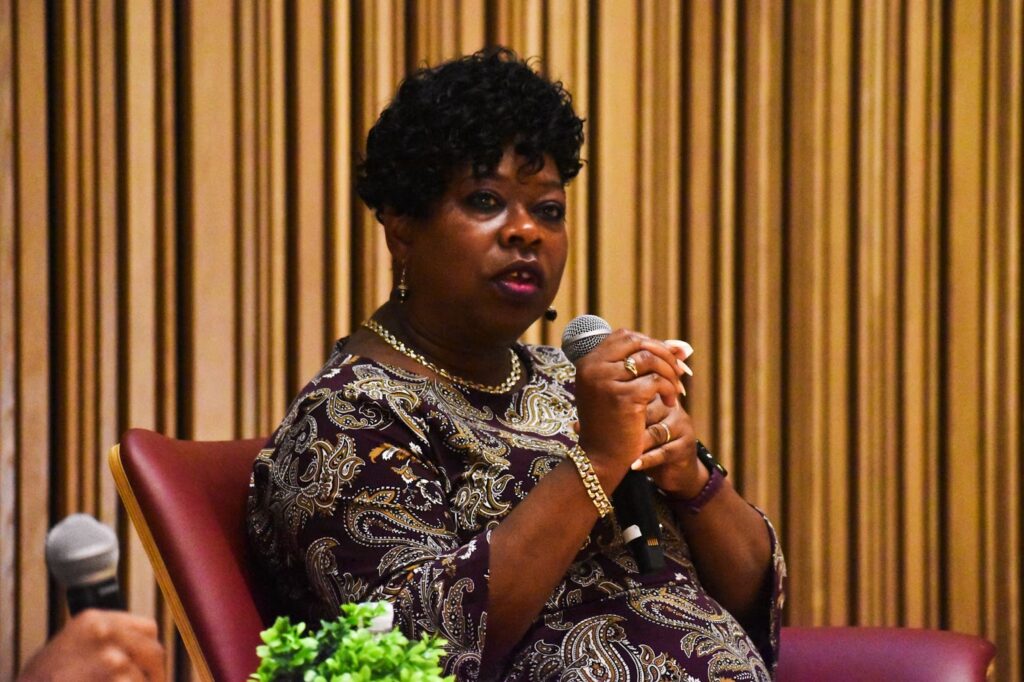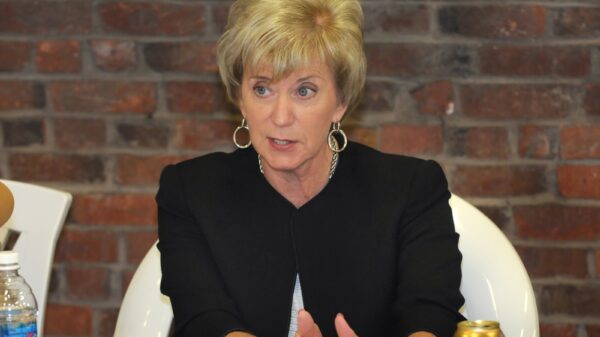
The 2022 Root Institute featured prominent Black professionals across various fields discussing ways to advance and support the Black community.
Taking place at the Martin Luther King Jr. Library on Sept. 13. and 14, the conference featured Georgia gubernatorial candidate Stacey Abrams, civil rights lawyers Ben Crump and Chance D. Lynch and activists such as Rev. Dr. William Barber II, Tamika Mallory and Latosha Brown. The conference has been hosted by the publication, “The Root,” for three years, and this was its first in-person institute. Vanessa De Luca, the editor-in-chief of “The Root” and one of the programmers of the event, said the topics discussed are continuations of what they cover regularly.
“We thought it would be great to have an opportunity to not only cover the community but actually come and be in the community to have some thought-provoking conversations around things that matter to us. It’s an opportunity for us to talk about our own future in our own way,” De Luca said.
“My hope is that we are able to further the conversation, bring insight into what the issues are specifically when it comes to Black folks…..We think it is important to use our platform for conversations like this because if we’re not doing it then who is,” she continued.
On Tuesday, conversations included “mental health and the Black family” with accomplished actor Courney B. Vance along with psychologist and radio host, Dr. Robin L. Smith.
“We want to break the stigma around Black people and Black men but Black people in general….We’re here personally and collectively to invite the tribe to take care of their minds and their hearts so they can master their lives,” Dr. Smith said.
World-renowned Black female ballet dancer and the first African American female principal dancer for The American Ballet Theatre, Misty Copeland, spoke about her unique journey as well as the need for the arts among Black children in the “why our children need the arts to thrive” discussion. She also spoke about her new non-profit, The Misty Copeland Foundation, aiming to bring more equity, diversity and inclusion to ballet and dance for children.
“It’s time that we start to come together, especially in the Black community and support one another. The arts are so vital, especially to us. To be able to have our culture be a part of our education, I think that’s really important for me and the work that I’m doing….As Black people, I think to embrace one another and support one another, it’s important that we be our own advocates because we’re all we have, ” Copeland said in regards to the importance of bringing this topic to the Institute.
On Wednesday, there was a conversation about criminal justice after the death of George Floyd with three Black district attorneys, one of whom was a Howard University School of Law alumna and the first Black woman to serve as the district attorney of Bronx County, New York, Darcel Clark. Clark said that after the death of George Floyd, she now approaches the work with focusing on fairness to victims, defendants and the community. Clark previously worked as a judge for 16 years and as an assistant district attorney and has seen the shift from the “nail them and jail them” approach to public safety to the more community-based efforts imposed today.
“We have an obligation to public safety, that’s first and foremost of what DAs do. How we do the work is what matters, so we have to do it in a balanced way making sure that the resources go in the community so that people that shouldn’t end up in the criminal justice system don’t end up there. We need to really start engaging city government to start spending more money in our schools…people who are homeless, give them stability and a home…all of these things are what cause people to come into the criminal justice system because they’re lacking resources. So, our focus as DAs since George Floyd means, not only just locking people up and holding them accountable, but getting to people where they are to make sure they have the resources that they need so they don’t end up in the system in the first place,” Clark said.
The final discussion featured the co-chair of the Poor People’s Campaign, Rev. William Barber II, stressing the importance of attacking the root of the anti-democratic issues currently facing America. Rev. Barber said fighting white supremacy is about attacking legislation and policies, not just getting rid of Donald Trump.
Speaking about how “trumpism” is not a new phenomenon in America, Rev. Barber laid out the history of how race has been weaponized and used for political advantage and being used to keep poor people divided for centuries. He emphasized the injustices of poverty and racism, saying that collective power of poor people can make massive change through political participation and organizing.
“Too often what we see is an attempt to find one issue, one problem, one person. That’s not how American history was built, how it was made, and it’s not a true analysis….What I love about “The Root” is that they at least attempt to not just find the quickest storyline but to get to the depth of the story, and that’s why I was honored to participate,” Barber told The Hilltop about his speaking at the conference.
Copy edited by Chanice McClover-Lee























